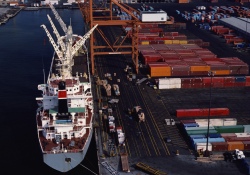- Maritime Piracy
- TalkFraud
- Membership
- Investigation
- Products & Services
The IMB aware of the escalating level of this criminal activity, wanted to provide a free service to the seafarer and established the 24 hour IMB Piracy Reporting Centre (PRC) in Kuala Lumpur, Malaysia.

A newsletter about fraud and global asset recovery from the office of International Chamber of Commerce's FraudNet. To read about key asset recovery cases and global compliance with anti-fraud and money-laundering laws, please click in the link above for the Newsletter PDF.

CCS offers a flexible membership arrangement based on the selection of predetermined membership packages. A prospective member can elect to join one or more Bureaux according to their requirements.

Losses due to official misconduct account for a great many maritime trade incidents. Each incident can be complex and wide-ranging in nature. It is therefore unlikely that any one company will have the knowledge and resources to be able to investigate it thoroughly.

Counterfeiting and piracy are a drain on our businesses and on the global economy. It has resulted in the widespread loss of lawful employment and a massive reduction of tax revenues.
Contact
Contact
© Commercial Crime Services, a division of the ICC Company limited by guarantee registered in England No 05716642 Registered office Cinnabar Wharf, 26 Wapping High Street LONDON E1W 1NG Tel: +44 (0)20 7423 6960 E-mail us your comments and remarks

 A recent study by Europol has shown that cash remains criminals’ instrument of choice to facilitate money laundering, in spite of the rapidly changing face of criminality and the rise of cybercrime.
A recent study by Europol has shown that cash remains criminals’ instrument of choice to facilitate money laundering, in spite of the rapidly changing face of criminality and the rise of cybercrime.





